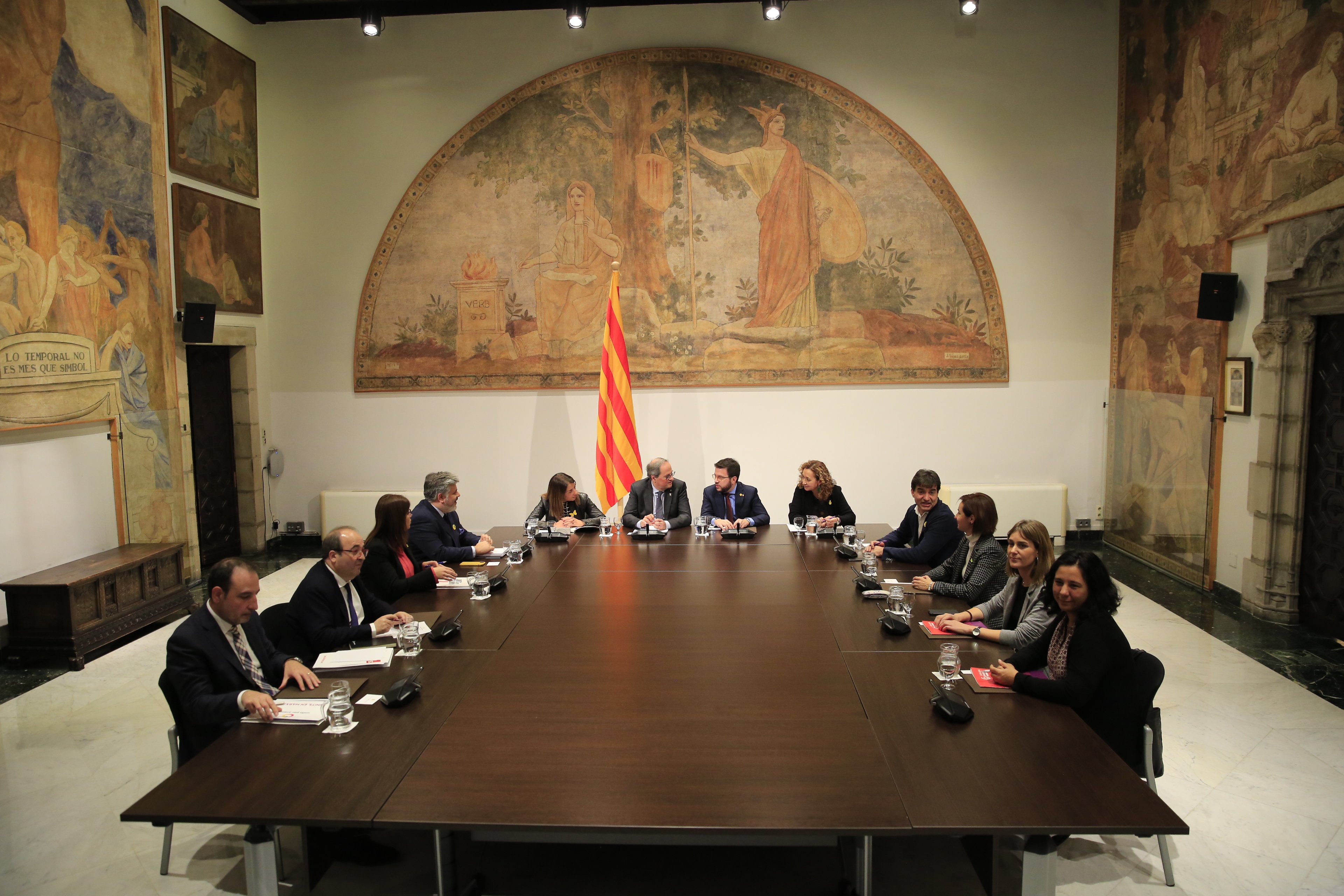Officially it's called the "dialogue space", but it could just as well have been called "dress rehearsal". One year later, the JxCat-ERC Catalan government has sat back down this Friday with PSC and En Comú around a table to try to find a non-traumatic solution to the Catalan conflict. The meeting was mostly unproductive. After almost two hours, they've established their differences and reached a sole agreement: they need to take advantage of the opportunity for dialogue and the willingness to meet again, without specifying when.
The bluntest, En Comú, used the meeting to demand president Torra call a Catalan election this Spring because "he's not in a condition to tackle the new phase of dialogue" and his government "is worn out and has no future". PSC looks positively on an early election because, its leader Iceta says, "the legislature is exhausted". That said, they recognise Torra has the right to head the negotiations with Spain. The president was categorical dismissing the possibility of calling an election and insisted that the only topic for discussion is self-determination.
ERC and PSOE agreed that the bilateral negotiations between Catalonia and Spain should start this month. Focussing on this immediate future, the independence movement agreed earlier this week that the Catalan government has to put self-determination and an amnesty for the prisoners at the heart of the talks. Today, they informed En Comú and PSC of this plan. Those parties will sit on the Spanish state's side of the table when the negotiations begin.
Although En Comú shares those two main requests, Jèssica Albiach wanted to clarify that "the referendum won't come tomorrow", for which reason they support "starting by armour-plating self government" and establishing an electoral calendar to allow for choosing "a new government to tackle the political conflict with the state". They would, however, look to pass a budget before an election.
ERC remains optimistic. Spokesperson Sergi Sabrià noted that three of the four parties to take part in the future talks "are in favour of a referendum". Albert Batet, on the other hand, said that JxCat is "little optimistic".
Today's meeting was the third of this format; the first was in autumn 2018 at the express request of PSC. Although the original idea was that it would involve all the parties represented in the Catalan Parliament, Cs, PP and CUP have always turned down the invitation. CUP see it as useless, falling within the framework of Spain's system of autonomous communities and the current Constitution; the right-wing parties don't recognise Torra as president.
The last time they met, on 5th February 2019, the participants agreed to meet every month and discussed the figure of a "rapporteur" to lead the talks. Within days, there was a protest of the three right-wing parties in Madrid and ERC and PDeCAT would bring down Pedro Sánchez's budget. And there would end the first attempt between Sánchez and Torra's governments to reach an understanding.
From there, events gathered pace: snap Spanish election, the trial of the pro-independence leaders, the devastating sentences, protests around Catalonia, repeat Spanish election, PSOE embracing Cs' rhetoric, Rivera's collapse, Vox's meteoric rise, reconciliation of Sánchez and Iglesias, Sánchez's chameleon change to pull together his investiture, the ERC-PSOE agreement, Torra's banning from office and the first coalition government since the restoration of democracy.

